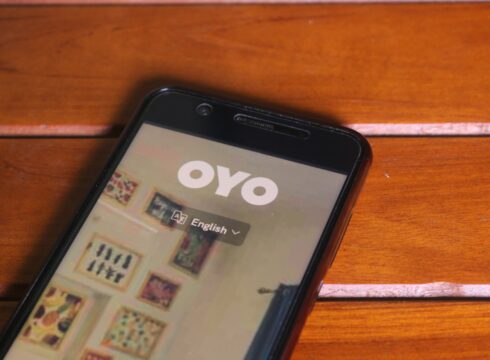SUMMARY
OYO is looking to enter the ready-to-eat food segment
The company has laid-off or re-purposed cloud kitchen teams
OYO launched over 20 cloud kitchens in Gurugram and Bengaluru in February 2019
Inc42 Daily Brief
Stay Ahead With Daily News & Analysis on India’s Tech & Startup Economy
Gurugram-based hospitality unicorn OYO has been heavily impacted with Covid-19 crisis and has been facing disruption in daily operations. However, the crisis has further hit its already struggling cloud kitchen plans, forcing the company to experiment with ready-to-eat food products.
A report by Moneycontrol has revealed that OYO is looking to enter the ready-to-eat food segment with partnerships on a revenue-sharing model with manufacturers. The report adds that OYO also downsized the cloud kitchen team, as “out of over 150 people in the corporate team only around 40-45 remain in the company and from the on-ground team which consisted of another 150-200 people almost all have been laid off or re-purposed across other divisions.”
It is to be noted that OYO launched over 20 cloud kitchens in Gurugram and Bengaluru in February 2019. Cloud kitchens such as Adraq and O’Biriyani both run by OYO were operational and serving food.
Under its full inventory control franchise model, OYO allowed its guests to order from the hotel’s kitchen and therefore, had a full kitchen team. To enable the use of resources beyond hotels, OYO had started this experiment in a few hotels during a testing phase.
However, cloud kitchen is yet another failed attempt at food by OYO. In 2015, OYO had launched OYO Café through which it used to aggregate kitchens from its listed hotels and sold them under its own brand name.
The company’s cafe plans were further tested in 2019 when company’s Townhouse arm launched delivery or takeaway from an inhouse cafe brand called The French Press. The company had been operating these coffee shops and kitchens in many of its Townhouse properties, both independently and sometimes in partnership with an established brand.
This initiative has also been put on hold amid Covid-19 crisis. An OYO spokesperson told us, ”At OYO, we operate several full-service hotels around the country. We have rationalised our cloud kitchen portfolio and continue to operate it at a smaller scale. Previously, we were primarily running cloud kitchens while serving food at our hotels. Currently, we are facilitating deliveries in neighbourhoods where our hotels are located while continuing to delight our guests with a good food experience. We have nothing further to share at the moment.”
The company sources said that OYO believes that RTE is a safe and also healthy option for guests but the company doesn’t completely rely on one approach for its kitchens. They said that for OYO, the use of frozen food is an extremely small part of the kitchen operations and only limited to the deliveries made under the cloud kitchen arm of the business.
India is seeing growth in the food and beverage industry as the market is expected to reach $46 Bn by 2020. According to “India Ready-To-Cook Market Outlook, 2021”, the total market for ready-to-cook is growing with a CAGR of 19.60% from the last five years. It is projected to reach $754.82 Mn by the end of 2022.
According to DataLabs by Inc42, the total online food delivery users in Indian stood at more than 182 Mn as of 2019. The pace at which new users are coming on the food delivery platform is estimated at 12%. Overall, India’s foodtech market was expected to grow to $5 Bn in 2019, and by 2023, it is expected to cross $15 Bn.
Note: We at Inc42 take our ethics very seriously. More information about it can be found here.


